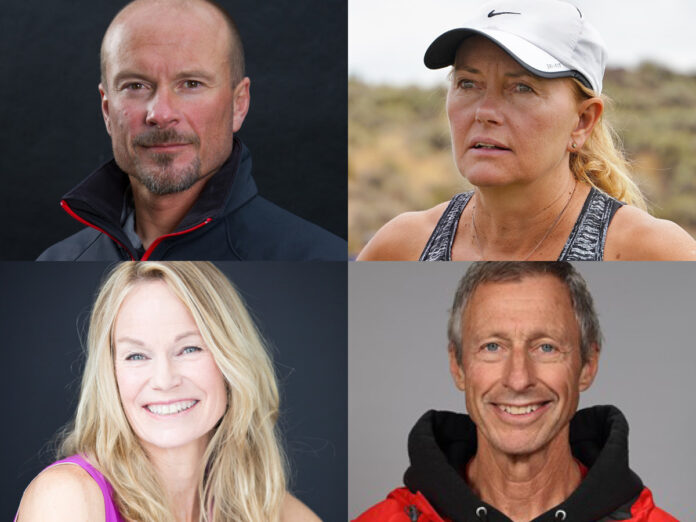
Training is a journey sometimes beset with workout doldrums, injuries and discouragements. A good coach can help you through these tough times so here’s some top-notch advice from four of the best coaches in Canada.
“When you’re grinding away and you feel like you’re not making any headway, that is when the learning, the improvement and the training effect take hold,” says Rob Kober.
According to Kober, athletes have to trust that with perseverance the situation will change.
Kober also points out that sometimes taking short breaks from training blocks allows for physiological changes and psychological rejuvenation so that when you return to training, “Whammo! You’ll experience big jumps in your performance.”
Run training can get a bit monotonous, especially when you have to put in the mileage so Brit Townsend recommends changing the stimuli every four to six weeks.
“I’ll change the venue, I’ll change the workout [adding hills, speed work, circuit training], and I may even change who the athletes are training with that day.”
Sometimes the students will run together in a different part of the city and then go for brunch when feeling a need to connect and add some excitement to their program. Townsend also recommends keeping a log of workouts, time trials and races.
“We get our confidence and self-belief from the evidence, and from there we can reflect on our performances and set achievable goals.”
Lynn Kanuka never runs with music and encourages athletes to listen to their footsteps and to tap into their rhythm. Tuning in to your body’s rhythms will help you recognize your needs at different ages and phases and to seek solutions that make more sense for you at that time in your life, be it switching coaches, easing up or training at a different time of day.
“Few people win the gold medal,” Kanuka says. “What’s most important is that you enjoy the athletic journey.” At high levels of competition Kanuka would go exploring rather than stay in her hotel room waiting for the race.
“Appreciate where you are and have fun,” advises Kanuka.
Doug Lamont’s suggestion for success is to join a group to train with, “because it’s easier to suffer together!” There is accountability when you belong to a group, he says, and you motivate each other to show up every day.
“It’s amazing what people will do for other people that they won’t do for themselves,” says Lamont, who’s witnessed countless examples of students putting in amazing performances for their team when individually they’ve pushed themselves less hard. Most importantly, an athlete has to believe they can achieve their goal.
Rob Kober – Calgary, AB
Head Coach of Alberta Mogul Team; 2018 Jack Donohue Coach of the Year
Brit Townsend – Vancouver, B.C.
Head Coach Cross-Country/Track and Field, Simon Fraser University; Two-Time Olympian and World, Pan American Games and Commonwealth Games Champion
Doug Lamont – Calgary, AB
Head Coach Cross-Country/Track and Field at the University of Calgary; U SPORT Men’s Cross-Country Coach of the Year 2018, 2019
Lynn Kanuka – Vancouver, B.C.
Middle Distance Head Coach at Ocean Athletics Track and Field Club; Olympian, World and
Commonwealth Games Champion















